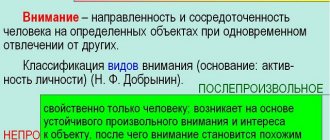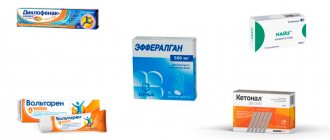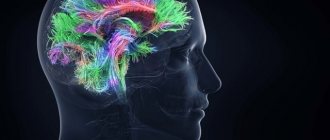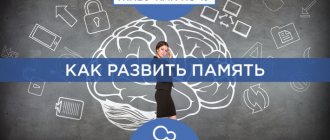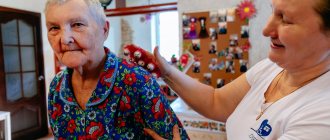What is ADHD?
It is a neurological behavioral and developmental disorder that is diagnosed in childhood but often remains active into adulthood.
Children with this syndrome have difficulty concentrating, so it is not easy for them to master classes in kindergarten (and subsequently school subjects). Due to inattention, the child makes mistakes and does not assimilate the teacher’s explanations. Hyperactive students are overly energetic and make a lot of unnecessary movements instead of focusing on completing the task.
It happens that teachers mistakenly explain this behavior by insufficient upbringing, and classify students with ADHD as disobedient and uncontrollable. But the reasons for this behavior are not in parental inattention to the baby, but in the peculiarities of the functioning of its parts of the brain.
Alternative Treatments
A therapist may recommend alternative treatments and dietary changes that are helpful in treating symptoms. These include:
· Meditation and mindfulness exercises to help relieve anxiety.
· Work with a psychologist to learn organizational techniques and other everyday coping skills.
· Technique of emotional freedom. It is known as tapping and involves using your fingers to tap a series of meridians on the body that activate emotional release.
· Neurofeedback training (or EEG biofeedback) is used to produce brain wave patterns associated with concentration.
· Dietary changes to eat foods to improve brain function. For example, limiting white flour, white sugar, processed foods and including more fruits and vegetables, as well as foods rich in omega-3 fatty acids such as walnuts and salmon.
What causes attention deficit hyperactivity disorder?
Today, scientists do not name the exact cause of the development of ADHD, but most studies hypothesize that the occurrence of the disorder may be influenced by pathological changes in the gene responsible for the production of dopamine and the activity of the corresponding receptors.
There is a version that the syndrome can develop as a result of the complex influence of social, psychological and biological factors.
The development of the disorder in children is highly likely if:
- the baby's parents were also diagnosed with ADHD;
- the mother suffered an infectious disease during pregnancy;
- the child and mother have a conflict of Rh blood values;
- the mother abused alcohol, smoked, took medications or drugs during pregnancy;
- the birth was difficult or premature, stimulation was performed;
- the baby suffered a serious infectious disease, pneumonia, kidney disease at an early age;
- the child has a diagnosis of traumatic brain injury;
- The baby grows up in an environmentally poor environment.
The cause of ADHD in the first years of life may be biological factors, later the risk of social and psychological circumstances predominates. Dysfunctional family relationships, frequent quarrels, lack of parental attention, or excessive care and control will not cause attention deficit disorder, but will significantly increase its symptoms.
Typology of ADHD
The syndrome is classified into three types of course:
- Inattentive
, in which attention deficit predominates. Children (usually girls) with this type of disorder are absent-minded and withdrawn, and have a developed imagination.
- Hyperactive
, which is characterized by emotional instability, impulsiveness, and increased motor excitability (more often diagnosed in boys).
- And the most common type is mixed
, which combines symptoms of the first two types (impaired attention and increased activity).
Symptoms of ADHD in preschool children
Typically, preschoolers exhibit complex symptoms of ADHD, so the disorder is easier to diagnose at this age.
Parents and educators should be alert if a child:
- forgetful, easily distracted from classes, as if he is not listening to the teacher’s explanations;
- constantly moves, performs aimless actions;
- impulsive, impatient, often interrupts other children, cannot listen to the teacher’s story to the end;
- avoids monotonous and routine tasks;
- experiences obvious problems with concentration, that is, he may skip lines when reading, not finish the job he has started, and often loses/forgets things and toys;
- cannot do one thing for more than 10 minutes;
- has difficulties with self-organization;
- can get up from his seat during class, move his arms and legs chaotically, jump, twitch;
- speaks fluently and loudly, “swallowing” the endings of words and sentences;
- accompanies speech with active gestures and facial expressions;
- suffers from frequent mood swings;
- ignores accepted norms of behavior;
- aggressive and quick-tempered, does not accept the rules of the game, can hit another child, is easily offended;
- does not know how to wait, cries hysterically if he does not get what he wants at this particular moment;
- does not feel fear of danger, so is often susceptible to injury.
It is necessary to understand that such behavior can also occur in healthy children and are signs of maturation or a complex character. To talk about the presence of attention deficit hyperactivity disorder in a child, you need to consult a specialist.
Behavior correction
Nowadays, attention deficit in children is becoming more and more common. The signs and correction of this pathology should be known to all adults who communicate with a sick child. It is believed that it is impossible to completely cure the disease, but it is possible to correct the behavior of children and make it easier for them to adapt to society. This requires the participation of all people around the child, especially parents and teachers.
Regular sessions with a psychologist are effective. They will help the child overcome the desire to act impulsively, control himself and react correctly to offense. For this, various exercises are used and communicative situations are modeled. A relaxation technique that helps relieve tension is very useful. Parents and teachers need to constantly encourage the correct behavior of such children. Only a positive reaction will help them remember for a long time how to act.
Who diagnoses ADHD and how?
Diagnosis is carried out by several specialists: neuropsychiatrist, pediatrician, neuropsychologist, speech therapist-defectologist. In addition to the medical examination, the child is monitored and parents are asked to get involved. Preschoolers are given oral psychological tests, and a symptom survey is completed by parents.
ADHD is diagnosed when:
- the presence of pronounced symptoms that do not go away within six months;
- constantly and everywhere showing signs of disorder (in kindergarten, on the playground, during a walk, and at home).
When making a diagnosis, it is important not to confuse ADHD with other conditions that can also affect behavior and development.
You can undergo training and obtain the profession of a neuropsychologist on our distance professional retraining course. You will master a new interesting direction and will be able to diagnose, treat and prevent ADHD and other disorders in the field of neuropsychology in children.
Tips for parents
Learn to follow a daily routine, this is very important for a child with ADHD; perform all routine moments at the same time. Create a comfortable environment for your child where he can be active for his own benefit. Enroll in sports sections, clubs and swimming
Protect him from overwork, try to get enough sleep. When prohibiting one thing, always offer an alternative in return. For example, you can’t play with a ball at home, but you can play outside, suggest playing together. If possible, parents can attend behavioral programs provided at the centers. There they will be taught how to interact correctly with children and will share the secrets of raising and developing such children. Such classes are also conducted with children, both individually and in group form. Use visual stimulation and pictures of actions to reinforce verbal instructions. Children love stroking, massage each other, draw on the back with your hands. Listen to music. It has long been proven that classical music helps children focus and concentrate. V. Beethoven “Piano Concerto No. 5-6” controls all parts of your child’s brain at the same time, stimulates speech skills and motor skills. A. Mozart: “Symphony No. 40 in G minor” trains the muscles in the ear, the sound activates motor and auditory functions. Parents in the home environment can correct their children themselves using games aimed at training one function.
How is the syndrome treated?
Correction of ADHD is carried out in a complex - drug therapy, physiotherapy, psychotherapy.
In the most difficult cases, drug treatment is prescribed. But, basically, it doesn’t come to this; serious medications are not recommended for children at such a young age. If a neuropsychiatrist or pediatrician nevertheless prescribes a psychocorrective drug, it should be taken only under the supervision of a doctor, and parents are advised to closely monitor changes in the child’s behavior and mood.
Physiotherapy will help improve cerebral circulation, normalize vascular tone, stabilize the psycho-emotional background, and reduce excitability.
Consultations with a child psychologist take place in a playful way and help to involve the child in the team and react correctly to the world and situations around him. Using effective psychological methods, a specialist will teach the child to better understand his own emotions, control impulsiveness and behavior, reduce the level of anxiety and develop attention and perseverance.

